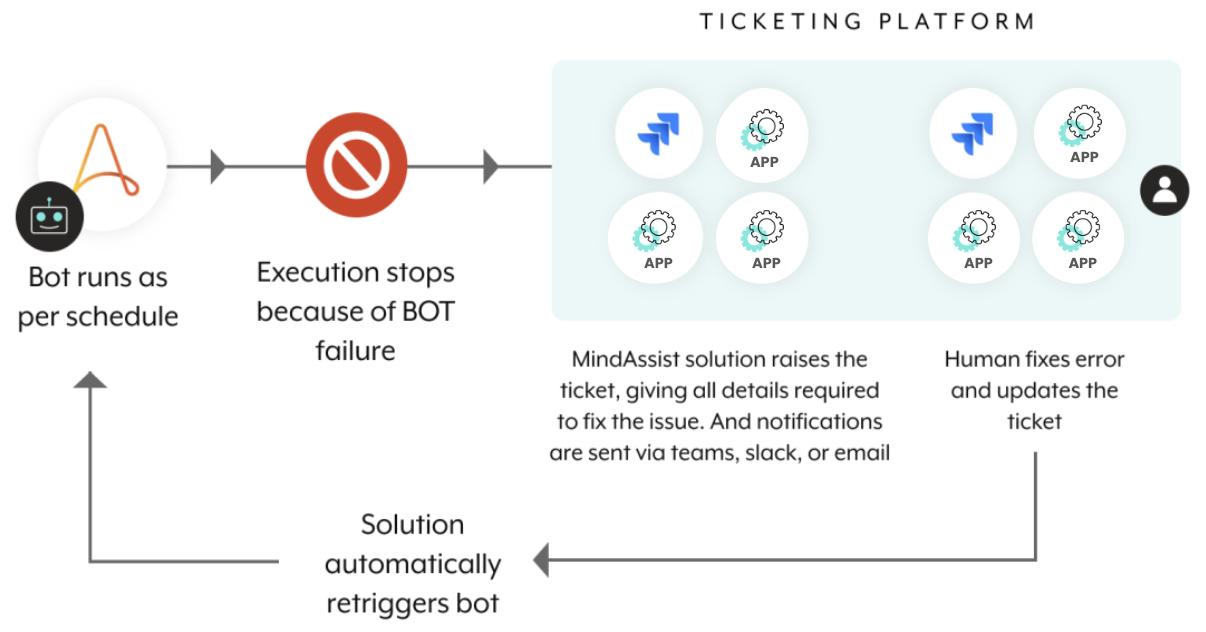Allens is an international law firm with award-winning practice areas throughout Australia and Asia. With over 1,300 employees across 8 offices and a history dating back to 1822, the firm is one of the largest in the Asia-Pacific, boasting illustrious judicial and corporate alumni.
Yet, this scale does not faze Shane Rigney, Head of Integration and Automation Development at Allens. When Shane is not saving lives on the water as a dive rescue volunteer with Marine Rescue NSW, he finds purpose in pioneering a future-ready technology strategy for Allens – one that empowers the firm to drive consistently excellent client experience.
This required unifying integration, automation and artificial intelligence (AI), as part of a cohesive “enterprise orchestration” strategy. In this story, we dive into Allens’ journey to drive efficiency and automate at scale, sparked by Shane’s “lightbulb” moment with Workato.
Fragile to robust; forms to conversations
Shane’s team of 14 had used business process automation for specific workflows, robotic process automation (RPA) to fill in the gaps, and had even developed their own internal chatbot (i.e. Allen), to streamline communications and manage office capacity during the pandemic. Yet, they knew they could do more. When the team relied heavily on RPA to coordinate data for critical functions like finance, user-interface based automation turned out to be more fragile, and was also a challenge to maintain and troubleshoot.
Having used integration tools before, Shane knew exactly what was missing – the capability to swiftly build deep integrations that are also cloud-native and API-first. He researched several options but the “lightbulb” moment came to him at one of Gartner’s IT Symposiums, where Workato demonstrated an automated employee onboarding workflow powered by Workbot.
Pioneering API-first integration-led automations
Below are three ways in which Allens evolved itself with Workato.
Seamless data syncs between cloud and on-premise marketing systems
A business case presented itself when Allens chose to leverage Marketo’s cloud offering, to complement their existing on-premise marketing system. This required integrating both systems, to synchronise data. Workato was chosen because the platform’s robust connectivity to Marketo meant that Allens’ marketing team could stand to unlock the full potential of Marketo’s powerful functionalities, by using Workato to feed it the data it needed.
Scalable and consistent API integrations for internal products
Shane’s team also seized the opportunity to use Workato to uplift their growing data architecture practice, which is powered by an API framework they built themselves. The team builds internal products on this API base, while tapping on Workato to ensure scalability and consistency.
Self-healing RPA health check automation
When faced with no other viable option, Shane and his team found themselves partnering with Mindfields to implement MindAssist on Workato, as a way to keep an eye on the health and resilience of prior automations, particularly RPA bots that support critical functions like finance. The solution continuously monitors, alerts and automates support ticket creation to ensure that the bots are running as they are supposed to.
Here’s how it works:

Now, AI, large language models and cognitive services present an opportunity to accelerate this journey to unlock knowledge in a more intelligent, accessible and personal way. Shane’s team has started leaning into leveraging AI, starting cautiously with the right use cases and prioritising those that made sense to the business, while maintaining security. For instance, in the above workflow, Workato’s OpenAI integration can be used to get AI to:
- triage or monitor issues that would otherwise require human intervention, using details retrieved by Workato, or
- identify a potential action to perform based on inputs extracted by Workato.
Speed, consistency and resilience
Unifying automation, integration and AI has led to remarkable outcomes for Allens.
- Responsiveness: Faster response times, data consistency, and reduced noise and escalations.
- Time savings: Cuts out the need for manual heavy lifting by process owners in marketing and finance, and builders in IT. This allows them to focus on elevating the broader experience.
- Enhanced employee experience: Chat-based experience facilitates seamless interactions and efficient process completion.
- Oversight and resilience: Improved operational resilience and monitoring of automation systems, ensuring bots operate as intended and that any issues are promptly addressed.
Reimagining the future of law
With Workato, Shane’s team has laid the foundation for a resilient, scalable and intelligent legal practice, with an Automation Centre of Excellence that fits the culture of the firm. This effort is both top down and bottom up. Top down to drive it strategically and provide the budget and backing to tackle it at scale, with bottom up engagement by process experts who know the process intimately. These experts identify opportunities and embed automations within the business.
“Ultimately, an automation culture requires a curious mindset with an ability and permission to question the way things are done,” explains Shane. He is especially keen to explore building robust data pipelines with Workato and to dive deeper into knowledge mining and agentic orchestration with Workato Genie, which sings to the vision of having a parent bot – a central place to ask questions – that can hand over to a children of bots.

